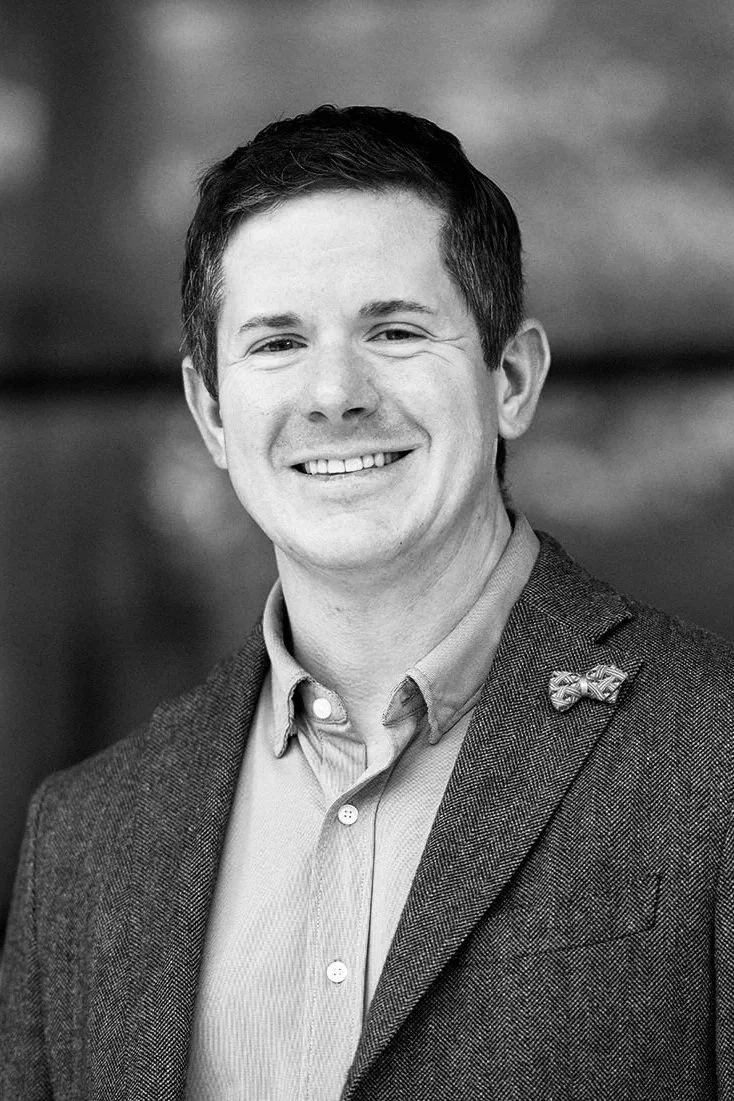H a n n a F o b a r e
President/Founder
Life & Mental Health Coach
Hanna Fobare was born and raised in Dallas, Texas. She is the middle sister in a family of three girls. She graduated from The Hockaday School in 2010 where she enjoyed playing competitive soccer and running track. Hanna continued her soccer career after high school by enrolling at Clemson University and playing for their NCAA Division I women’s soccer program.
Looking back on her middle and high school years, Hanna now recognizes patterns of deterioration of her self-esteem. Subject to a hyper competitive and rigorous academic school environment, Hanna sought and found success by flexing her athletic and social strengths. She was a social butterfly with tons of friends and a force to be reckoned with on the soccer field. By the end of Hanna’s senior year of high school, she had committed to a top university with an athletic scholarship.
However, shortly into her soccer career at Clemson, the sport that once brought Hanna joy and fun began to make her feel tired and anxious. She became frustrated with her lack of playing time and the demands of her busy practice and travel schedule. Recognizing that her involvement on the team was no longer making her happy, Hanna made the decision to leave the program.
Hanna found herself with an unfamiliar amount of time and few commitments. For the first time in her life, she had no formal structure or sense of self-identity. She thought to herself, if she was no longer an elite athlete then who was she? How would her success as a peer, sister, and daughter be measured? Feeling lost in a college environment, substances became Hanna’s companion and she began to spend more and more time partying. Hanna’s depression continued to get worse and she eventually started to use other chemicals seeking acceptance from friends, validation from men, and fulfillment through material things. It was at this point that her behavioral issues surfaced and her self-esteem plummeted. With partying being constant part of her life and routine, she fell into a deep depression. Slowly, her mental health struggles became all-consuming at the expense of her schoolwork, friendships, and any form of self-care.
Over the course of a couple of years Hanna’s condition became so serious and her troubling behavior so apparent that her family admitted her to a dual diagnosis treatment center. At first, she sought treatment for her family’s sake alone. However, eventually Hanna realized that she would only achieve recovery if it came from within. Finally, after her time in therapy and undergoing treatment, Hanna committed to recovery and began her journey.
Hanna’s story is a turbulent and interesting one. With the help of family, friends, doctors, therapists, and support from the recovery field, she was able to achieve full recovery and earn her Bachelors of Science in Psychology. Bad days are inevitable, but she no longer turns to substances for solace. Instead, Hanna has developed a healthy life style and coping skills. Hanna has found a huge support network within the Dallas recovery community and developed an authentic and lifelong passion for helping others. She finds joy in spirituality and engages in regular fitness, keeping herself healthy and her mind clear. Hanna now knows that her recovery is a huge part of her life, and is the key to her success as a professional.
Hanna feels immense gratitude to those who supported and guided her journey to recovery. Empowered by her journey, Hanna founded HEF recovery. With the expert guidance and resources provided by HEF, those suffering addiction can too, begin their journey.
T A R A D R A P E R
Recovery Coach
Tara was born and raised in a small town in South Florida. She is the middle daughter of 3 girls, and is now a mother to 3 girls. Growing up, Tara was a high achiever in school, an officer of the National Honor Society, student council officer, and cheer captain. Socially, she seemed to be popular among her peers. But on the inside, Tara was always struggling with insecurities, anxiety, and depression. She started drinking in high school and this became her tool for dealing with these uncomfortable feelings.
Upon graduating high school in 1996, she went on to the University of Florida. Tara completed one semester, before making several moves (commonly known as “geographic cures” in the recovery world). Eventually she finished her nursing degree in 2002. She moved to Texas upon graduating from nursing school, one more “geographic cure”, and began working as a nurse in the neuro/ trauma ICU at Baylor University Medical Center in Dallas, Texas.
Soon after moving to Texas, Tara met her first husband who she had her first daughter with. Her drinking continued to escalate and that marriage ended two years later. She met her current husband while she was working in the ICU, and he was completing his surgical residency. They married and had 2 daughters together. During each pregnancy, she was convinced she was not an alcoholic because she was able to remain sober during her pregnancies. However after each pregnancy, the drinking would begin again and escalate to new levels of tolerance and consumption. It was evident Tara had a problem, but was afraid to admit it to anyone else or ask for help. She became a daily drinker and blackouts were occurring regularly. Passing out on the couch by 8:00 PM was a nightly occurrence.
Tara had become a shell of the person she once was, waking up every morning full of shame, regret, fear, anxiety and often, amnesia for what had happened the night before. She didn’t want to continue on this path, but didn’t know how to stop. She was afraid and felt absolutely hopeless. Finally in April of 2019, her husband pleaded with her, telling her “What am I going to tell our daughters when you have died from alcoholism over the next 5-10 years? What will I tell them when they ask me why I didn’t do more to get you to stop?” Tara was finally ready to actively seek help and make true changes. That same day, she called Hanna at HEF recovery and asked for help.
Tara has been sober since April 18, 2019, and her life looks completely different. She no longer feels the need to numb her feelings, and is fully present to experience all of the ups and downs life has to offer. She has a loving relationship with her husband and 3 daughters. She and her family love to travel, go hiking, watch ice hockey (especially the Dallas Stars) and just spend time together. Tara took her first yoga class when she was 6 months sober and felt that the 2 worlds of yoga and recovery went hand in hand. She loved it so much that she became a yoga instructor in 2021. Today and every day, Tara is so grateful for her recovery and the help she received from HEF recovery. She is so excited to start her journey as a recovery coach, in the hopes of helping others to regain the joy and peace that has been lost to addiction. In addiction we give everything up for one thing, in recovery, we give up one thing for everything.
A L I S O N W a T R O S
Recovery Coach
Alison Watros, with over 20 years of experience in behavioral health, began her career in youth intervention in Jackson, Mississippi, and later contributed significantly to the Dallas Council on Alcohol and Drugs. She co-founded the Texas Alliance for Drug Endangered Children and the Dallas Area Drug Prevention Partnership. Alison's passion led her to establish Windhaven House and Windhaven Counseling Center, which were acquired by a behavioral healthcare company in 2019. Following this, she played a pivotal role in opening a state-of-the-art detox facility in Frisco, Texas.
Her personal journey in overcoming addiction began in October 2000, leading her to long-term treatment and sober living. Alison moved from Florida to Texas when she was 12. She grew up on the tennis court playing competitive tennis which quickly became her identity and source of self esteem. Shortly after she moved to Texas, the nuances of a pre teen became very apparent causing her to be drawn to the wrong group of friends in middle school. Being in a new state caused a lot of anxiety. Alison felt extremely awkward, out of place, and lonely. She was craving inclusion. On top of that, her parents were going through a divorce so her emotional needs were not being met. In high school Alison became a big “party girl.” When she was engaging in these behaviors she felt like she belonged and could forget about reality for a second. She continued to party throughout high school with very little consequences until her mid twenties. As her disease progressed the consequences got more serious and dangerous. Because of this, she was sent to treatment. During her stay at the inpatient treatment center Alison was able to learn about what is needed to live a healthy, happy life without substances. She continued to create structure, practice discipline, and apply action to be where she is today.
Alison's dedication to assisting families and individuals in recovery reflects in her work, where she values witnessing transformation within family systems. She has does extensive training in case management and interventions. In addition she is a Licensed Chemical Dependency Counselor Intern (LCDC-I), Alison's blend of personal and professional experiences makes her a key asset to HEF Recovery and the broader field of behavioral health. Outside of work, she serves on the Nexus Recovery Center for Women's Board of Directors. She loves to watch her daughter play soccer, spend time with her two Golden Doodles and enjoys being back on the court playing pickleball.
G E O R G E p Y z I K
Recovery Coach & Parent Coach
George Pyzik was born and raised in Dallas, Texas with his older brother and two younger sisters. He is a devoted husband to his wife Mary, and a proud new father to their daughter, Holly. Their family is completed by their two goldendoodles, Sadie and Hank.
From a young age, George exhibited a strong competitive spirit, excelling in soccer, baseball, and football. However, it was also during this time, specifically his junior year of high school, when he began to struggle with alcohol addiction. His addiction only intensified while attending the University of Arkansas, resulting in severe consequences such as burned bridges, financial losses, and hospitalization twice with pancreatitis.
After five years of battling his addiction, George made the decision to go to rehab followed by sober living at the age of 23. During his time in sober living, George learned the tools to recover personally and developed a passion for helping others facing similar challenges too. His goal is to show others that leading a life of freedom is possible.
With over a decade of experience, George began working in the addiction field at a men’s transitional living program. Beyond helping individuals recover, he found a passion for being a mentor to families as well. He quickly discovered that removing the drugs and alcohol was simply a byproduct of a radical psychological change. His real passion came from watching those he was trying to help become better sons, fathers, husbands, employees, employers etc.
George’s enthusiasm has evolved over the years with the support of sponsorships, working in direct client care, and helping families navigate through broken homes and damaged relationships. His focus is not solely directed at the individual faced with addiction struggles, but also their families. George is committed to speaking truth in love and empowering others to rebuild their lives and, in turn, help others do the same.
A V E R y J O H N S o N
Life & Mental Health Coach
Avery Johnson was born in Austin, Texas and is the middle of three girls. She is very close to her family and enjoys spending time with them and her dog, Ellie. Avery would describe her childhood as white picket fence picture perfect, or as close to it as you can get. From day one, Avery has been outgoing, extroverted, and very social. In high school, she struggled with ADHD and anxiety and coped with tough times and insecurities through many outlets, including substances and seeking validation from others. Upon graduating high school in 2015, Avery went to Texas Christian University. Avery completed one semester, before moving back to Austin. After going through a traumatic event, Avery’s life started to spiral out of control. She lost herself and kept digging a deeper and deeper hole. The former joyful, happy, outgoing Avery had been replaced with someone who was hurting and doing everything she could to numb and not deal with the trauma. Avery was struggling with crippling depression, anxiety, and PTSD. She was drinking more and more, lashing out at others, and doing anything she could to avoid feeling her pain. The person who once brought people together, was pushing everyone away, including her family, who were desperate to help her. Avery was full of guilt, shame, fear, sadness, and anxiety. Her parents took a leap of faith and moved her to Dallas, where she sought treatment. One day her therapist told her about HEF recovery. Avery continued to live in denial and weeks went by, until one night, Avery had had enough and decided something needed to change, and she reached out to HEF. In May of 2018, Avery met Hanna Fobare who completely changed her life. Through committing to recovery and working with HEF, Avery re-enrolled in school, got a job, learned to use health and fitness as a healthy outlet, repaired strained relationships, reconnected with her faith, rebuilt her life, and got her joy back. This took a lot of time, effort, and perseverance. Avery is eternally thankful for the help of HEF recovery and the role Hanna played in her story. Avery went on to get a Bachelor of Science in Psychology from the University of Texas at Dallas. Today, Avery is immensely grateful for her journey because it led her to realize her passion is to help others. The first day Avery met Hanna, Hanna told her that she could either continue to play the victim, or she could turn her mess into her message. Avery strives to do this daily by using her personal experiences to help others find their lost joy.
M I L E S E G G A R T
Life and Recovery Coach
Miles Eggart’s journey is one of resilience, reinvention, and a deep commitment to helping others find their way forward. Originally from Northwest Arkansas—where he attended the University of Arkansas, met his wife, and began building a family—Miles stepped into entrepreneurship early, founding a defense industry manufacturing and service company. This venture connected him with elite defense and law enforcement professionals on both national and international stages.
While building a company and raising a young family, Miles faced a personal battle with alcoholism, which ultimately led to divorce in 2013. In 2014, with the support of AA, steadfast loved ones, and a renewed sense of purpose, he chose sobriety—and began the hard, transformative work of personal growth. That same year, he and his wife remarried, reuniting their family in Dallas.
Professionally, Miles has spent more than 25 years in C-suite roles across multiple sectors, guiding teams from startup through M&A and pre-IPO, and working alongside hundreds of high performers. His leadership experience spans both public and private companies, giving him a rare perspective on what drives sustainable success.
Beyond the boardroom, Miles is a proud father of three (22, 20, and 16) and brings firsthand experience with parenting through autism/Asperger’s, as well as supporting LGBTQ family members. These life experiences deepen his empathy and expand the lens through which he helps others.
Today, Miles channels his personal and professional journey into life and recovery coaching. His mission is to help clients gain clarity in their purpose, build the confidence to voice their needs, and make the foundational changes that support lasting personal, family, and professional growth.







